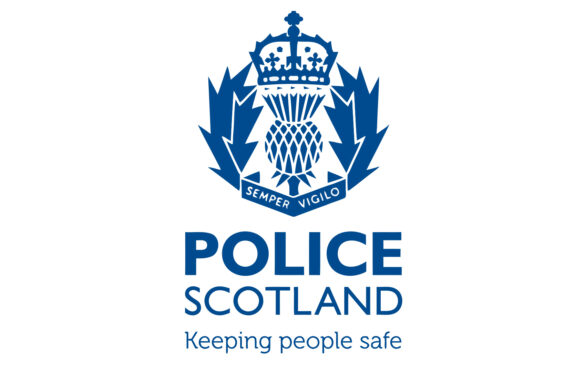
Journalists’ sources may have won new protection after what has been described as a landmark legal ruling.
A judgment by the Investigatory Powers Tribunal (IPT) suggests any public body attempting to identify the source of media stories may now be in breach of the journalists’ human rights.
The IPT has, in what lawyers suggest could be a far-reaching ruling, decided Police Scotland breached the rights of a journalist despite never asking him to reveal his sources and dropping a planned attempt to access his mobile phone records.
The ruling was delivered after Jim Wilson, editor of The Sunday Post, accused Scotland’s national force of breaching his rights as a journalist to protect sources under Article 10 of the European Convention on Human Rights.
Police Scotland insisted that because he was never approached and that an attempt to obtain his mobile phone records was dropped, his rights had been respected. However, after taking evidence at a two-day IPT hearing at the Court of Session in June, three senior judges disagreed.
Led by Lord Justice Singh, the judges decided that, while police had not obtained Wilson’s telephone number unlawfully and that an application to obtain his call data had been dropped and so did not come under the IPT’s jurisdiction, officers had breached his rights by investigating his suspected sources. They said: “The over-arching policy which underlies the protection of a journalist from being required to reveal his sources is the need to preserve his access to sources in the public interest. It recognises the need to prevent sources from being deterred from cooperation.
“That information about individuals was recovered with a view, it is now admitted, to discovering Mr Wilson’s sources, therefore it represents an interference with his Article 10 rights as a journalist. His name and status as a journalist were expressly invoked in both the authorised applications. There is a real risk that conduct of that sort will have a chilling effect on his ability to obtain and disseminate information in the public interest.”
The ruling concluded: “We find that Police Scotland acted in a manner incompatible with Mr Wilson’s rights under Article 10.”
The Sunday Post View: Is denial, delay and deflection working for Police Scotland?
The tribunal had heard how in 2015, Wilson, who was then editor of The Sunday Mail, and his colleague Brendan McGinty wrote a series of reports revealing the existence of a forgotten suspect in a murder investigation 10 years earlier. The case cannot be identified for legal reasons. In response, Police Scotland’s Counter Corruption Unit (CCU) was ordered to launch an investigation to identify any former and senior officers involved in passing information to the journalists. The force was later found to have unlawfully captured call records of two serving and two former officers.
The journalists were never approached by the police but Wilson later discovered his number had been obtained by the CCU. An application to capture his records was withdrawn after officers were told it would require judicial approval but Wilson was referred to in successful applications to seize call information of suspected sources.
Wilson, an experienced and award-winning journalist, complained to the IPT in February 2018, claiming his right to protect sources had been breached and asked Police Scotland to acknowledge its conduct had been unlawful.
The national force contested his complaint but the tribunal has now published its ruling. Wilson’s case was presented to three senior judges by the Tribunal’s counsel, Catherine Smith KC, and the judgment was released on Wednesday.
One leading lawyer familiar with media law said the decision is significant as it has no obvious precedent in the UK: “The police claimed because no one ever approached the journalists, their rights were unaffected. This ruling suggests that does not matter, that the breach is in the inquiry itself.”
Ronnie Clancy, an experienced KC with a strong interest in media law, agreed, saying: “This is a landmark judgment because it applies important principles of law in novel circumstances. It should be compulsory reading for all police officers and other law enforcement officials engaged in intelligence gathering work.
“The novelty in this case, the first case of its kind as far as my research reveals, is the infringement of the journalist’s rights arose simply because the purpose of the applications were to discover his sources.
“The tribunal noted his name and status as a journalist were expressly invoked in authorised applications so the breach occurred even though the police application did not directly target his number.”
Wilson received an apology from Police Scotland in the final hours of the two-day hearing from the national force’s lawyer, Ian Duguid KC, almost five years after lodging his complaint.
In response to the judgment, Police Scotland’s Assistant Chief Constable Andy Freeburn said: “An Investigatory Powers Tribunal has found that in 2015 Police Scotland wrongly sought to use communications data to identify the source of information provided to a journalist.
“We have worked hard to improve our anti-corruption practices and use of investigatory powers and strive to place our values of integrity, fairness, respect and a commitment to human rights at the heart of what we do.”
Wilson said: “Police Scotland made a bad decision in 2015 when it launched an inquiry into the sources of our story instead of the information it contained and it has continued to make bad decisions in the years since.
“Its failure to admit or take responsibility for unlawful action against journalists until being forced to do so more than seven years later seems regrettable and concerning.”

Enjoy the convenience of having The Sunday Post delivered as a digital ePaper straight to your smartphone, tablet or computer.
Subscribe for only £5.49 a month and enjoy all the benefits of the printed paper as a digital replica.
Subscribe